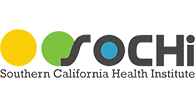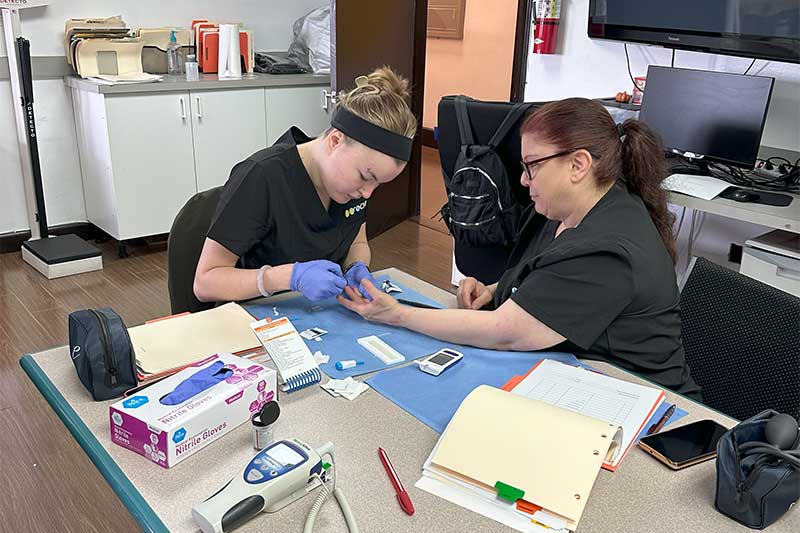Explore a comprehensive guide to nursing education pathways, find the right program for you, and step confidently into healthcare. Start your journey now.
The healthcare industry is evolving rapidly, necessitating a workforce that is not only skilled but also versatile and well-educated. Nurses stand at the forefront of patient care, and as such, there’s a growing emphasis on the importance of comprehensive nursing education. This blog post will navigate the various pathways in nursing education, helping aspiring nurses map out their journey toward becoming seasoned professionals in the field.
A Comprehensive Guide to Nursing Education Pathways
Explore comprehensive Nursing Education Pathways and find the right academic route for your nursing career. Get insights on degrees, certifications, and essential steps to start your journey in healthcare.
Whether you’re just starting to explore the possibility of a career in nursing or looking to advance your existing career, understanding the educational options available is the first step towards making informed decisions for your future. From entry-level preparations to advanced practice, let’s explore the pathways that shape the heroes clad in scrubs.
Entry-Level Nursing Education
The Entry-Level Nursing Education programs are designed for those passionate about making a difference in others’ lives. This comprehensive program equips you with the knowledge and skills to launch a successful nursing career.
1. Certified Nursing Assistant (CNA)
A CNA program is one of the quickest entry points into nursing. These programs can be completed within 4-12 weeks and provide hands-on experience in basic patient care under the supervision of a registered nurse (RN) or a licensed practical nurse (LPN).
- Approximate program length: 4-12 weeks
- Key subjects covered: Basic patient care, anatomy, infection control
- Career outcomes: Entry-level position in healthcare facilities, foundational experience for further nursing education.
2. Licensed Practical Nurse (LPN)/Licensed Vocational Nurse (LVN)
An LPN/LVN pathway typically requires a practical nursing diploma through an accredited institution. LPNs/LVNs are trained to provide basic nursing care and work closely alongside RNs and doctors.
- Approximate program length: 1 year
- Key subjects covered: Fundamentals of nursing, pharmacology, pediatrics, gerontology
- Career outcomes: Practical nursing positions in a variety of healthcare settings
Professional Nursing Education
Transform your nursing career with our leading-edge Professional Nursing Education programs.
3. Associate Degree in Nursing (ADN)
An Associate Degree in Nursing program is a step towards becoming an RN. ADN programs usually take two years to complete and provide a balance between nursing theory and practical experience in clinical settings.
- Approximate program length: 2 years
- Key subjects covered: Nursing science, clinical skills, critical thinking in nursing, community health
- Career outcomes: RN positions in hospitals, clinics, long-term care facilities, and other healthcare environments
4. Bachelor of Science in Nursing (BSN)
A BSN is increasingly becoming the standard for nursing education. While an RN can practice with an ADN, a BSN opens doors to leadership roles, specialty areas, and higher salary brackets. BSN programs typically span four years and offer more in-depth nursing research, management, and public health training.
- Approximate program length: 4 years
- Key subjects covered: Nursing research, leadership and management, community and public health, health assessment
- Career outcomes: Higher potential for leadership and specialized nursing roles, public health nursing, graduate studies
Advanced Nursing Education
Advanced Nursing Education – the definitive stepping stone for healthcare professionals seeking to elevate their careers.
5. Master of Science in Nursing (MSN)
An MSN degree is designed for RNs who want to specialize in a particular area of nursing, pursue roles in nurse education, or transition into leadership or administrative positions. MSN programs can also prepare nurses for roles as nurse practitioners (NPs), nurse midwives, or nurse anesthetists.
- Approximate program length: 2-3 years post-BSN
- Key subjects covered: Advanced practice nursing, healthcare policy, nursing theory, specialized clinical practice
- Career outcomes: Advanced practice registered nurse (APRN) roles, nurse educator, healthcare administrator, clinical nurse specialist
6. Doctor of Nursing Practice (DNP)
The DNP is a practice-focused terminal degree that prepares nurses for the highest level of clinical practice. It aims to develop healthcare leaders who can apply research findings to improve patient outcomes, systems management, and health policy.
- Approximate program length: 3-4 years post-MSN
- Key subjects covered: Healthcare leadership, policy advocacy, evidence-based practice, advanced clinical practice
- Career outcomes: Executive roles in nursing, health policy expert, clinical faculty, advanced clinical practitioner
7. PhD in Nursing
For those inclined toward research and academia, a Ph.D. in Nursing offers the opportunity to engage in original research and contribute to nursing knowledge. This academic degree prepares nurses for careers in research, academics, and advanced leadership roles.
- Approximate program length: 4-6 years post-MSN
- Key subjects covered: Nursing theory and research, statistics and data analysis, dissertation research
- Career outcomes: Nursing faculty, researcher, healthcare policy analyst
Specialized Pathways and Certifications
Certifications and specialization programs allow nurses to focus on areas of interest or to meet specific patient needs. Some areas include:
- Pediatric Nursing
- Geriatric Nursing
- Oncology Nursing
- Cardiac Nursing
- Surgical Nursing
Specialty certifications often require additional coursework and clinical experience, followed by a certification exam through accredited nursing associations.
Continuing Education and Lifelong Learning
Nurses are responsible for maintaining their competencies and staying updated on the latest in healthcare practice. Many states require continuing education units (CEUs) for license renewal. CEUs are opportunities for nurses to engage in lifelong learning and ensure their patients’ highest level of care.
Embracing the Journey
The journey to becoming a nurse can take many forms based on your aspirations, life circumstances, and the needs of the healthcare industry. Nurses are lifelong learners, and every step in education is an opportunity to refine your skills and broaden your impact on patient care.
Embarking on this journey demands both a calling and a commitment to the welfare of others. Nursing education imparts technical know-how and nurtures the empathy, communication skills, and ethical grounding expected of those who choose the noble nursing profession.
This dynamic field is constantly evolving, and with it, educational pathways will continue to grow and adapt to meet the demands of contemporary healthcare. Wherever you are on your educational journey, each step is integral to honing your proficiency as a nurse and your ability to make a meaningful difference in the lives of your patients.
Conclusion
As the demand for qualified and compassionate nurses rises, the paths we’ve discussed provide the foundation for a robust and fulfilling career in nursing, rich with opportunities for growth, specialization, and leadership. The healthcare landscape of tomorrow needs the nurturing hands of dedicated nurses today. Your educational pathway is not just a route to personal achievement but also a passage to contributing to a healthier world for all.




